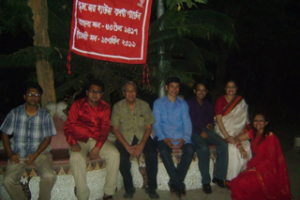Prime Minister Shinzo Abe’s announcement on Friday that he would step down will open the field for what may become a fierce battle to become his successor.
Abe, who took office in 2012 and became Japan’s longest-serving leader in the modern era, was originally set to leave office in September 2021. That date would have marked the end of his third three-year term as president of Japan’s governing Liberal Democratic Party.
He leaves office with no clear successor and with the country in crisis as it confronts deep economic damage caused by the coronavirus pandemic.
Those who hope to replace him have already begun jostling for position, with two candidates announcing their intent to stand before the official announcement had even been made.
The path to the premiership goes through the Liberal Democratic Party. Except for two brief stints, from 1993 to 1994 and 2009 to 2012, the party has governed Japan for most of its postwar history. Along with an allied party, Komeito, it controls the country’s Parliament.
Aspirants to the premiership first need to win the party’s presidency. Under normal circumstances, that would mean winning an open election in which half the voting power belongs to the party’s more than 1 million members, with the other half reserved for its legislators.
But because Abe is resigning in the middle of his term, the party has another, faster option. In an emergency, its rules allow the vote to be restricted to its members of Parliament and just three representatives from each of Japan’s 47 prefectures, for a total of 535 electors.
The party’s secretary-general, Toshihiro Nikai, told reporters on Friday that no decision had been made. “We want an outcome that is achieved in a way that all party members can agree on,” he said, adding, “If there were plenty of time, naturally, we should think about an open election, but whether we can do that is something I want to decide after hearing everyone’s opinion.”
But analysts say the party is likely to pursue the emergency option. In that case, the winner would need to navigate a murky backroom process of political deal-making and horse trading. Which procedure will be used is expected to be chosen in the coming days.
Nikai may prefer this option because he is hoping to have more power over the selection process, according to Jiro Yamaguchi, a professor of politics at Hosei University.
The secretary-general wants to “shut out the voices of the rank-and-file party members,” he said.
In either case, a candidate has to win a majority of the votes. If no one meets that bar, the two with the most votes participate in a runoff.
In 2012, Abe won just such a contest against Shigeru Ishiba, a conservative with an independent streak who has been widely considered one of the top contenders to replace Abe in the event of an open election among the party’s wider membership.
Once the party election is over, it is on to a vote by the Parliament.
That will require Abe to convene an extraordinary session of the Parliament and formally announce his resignation, something that could happen in September if the party selects its new leader rapidly.
Currently, the Liberal Democratic Party’s numerical superiority essentially guarantees that its sitting president will become the country’s head. Japan’s fractured opposition has no effective means of contesting the decision.
The only question is how long the new premier will last. Before Abe took office, the country had gone through six prime ministers in six years. Abe himself was one of them, serving a first stint in the role from 2006 to 2007.
Under the governing party’s rules, the new party president will be eligible to serve out the remainder of Abe’s term and then seek reelection up to three times, potentially opening the door for the winner to beat his record for the longest premiership.
But with events in a state of rapid flux at home and abroad, the new prime minister may find it especially challenging to maintain his hold on power, said Daniel Sneider, an expert on Japanese politics at Stanford University.
“No matter who’s prime minister, we’re going to see a weaker government,” he said, adding that “the next person is not going to be the person who is ultimately going to emerge as the next significant leader of Japan.”






















